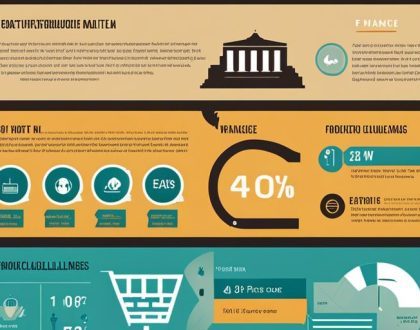Tips for Financial Management in Malta

Many residents of #Malta often find themselves navigating the intricacies of #financial management in a small yet competitive market. To help individuals and #businesses alike make informed decisions, this guide offers practical tips and insights on effective strategies for financial planning, saving, and investing. Whether you are a seasoned professional or someone just starting to build your financial portfolio, these tips can serve as valuable tools to help you navigate the financial landscape in Malta with confidence.
Understanding the Financial Landscape in Malta
Overview of Malta's Economy
Your landscape of financial management in Malta should begin with an understanding of the country’s economy. Malta boasts a diverse economy, with key sectors such as tourism, financial services, and manufacturing driving its growth. The country’s strategic location, skilled workforce, and business-friendly environment make it an attractive destination for foreign investment.
Key Financial Regulations and Compliance
The implementation of key financial regulations and compliance standards is a crucial aspect of financial management in Malta. The country follows EU regulations and directives, ensuring a high level of transparency and accountability in its financial sector. Additionally, Malta’s regulatory framework is designed to protect investors and promote stability in the market.
Personal Financial Management Strategies
Budgeting and Saving
Now is the time to take control of your finances by creating a budget that accounts for your income and expenses. Set aside a portion of your earnings for savings to prepare for unexpected expenses or future investments.
Investing in Malta's Markets
To make the most of your savings, consider investing in Malta’s thriving markets. With careful research and guidance from financial experts, you can explore opportunities in the local stock market or real estate market to grow your wealth.
Saving and growing your money through investment in Malta’s markets requires a deep understanding of market trends, risk management, and financial planning. It is advisable to consult with a financial advisor or investment professional before making any significant investment decisions.
Business Finance Management
Setting Up a Business in Malta
One of the first steps in managing business finances in Malta is setting up the company structure. Understanding the legal requirements and choosing the right business entity can impact taxation and liability aspects of the business.
Tax Planning and Benefits
With a corporate tax rate of 35% in Malta, tax planning becomes crucial for businesses. By taking advantage of tax incentives and benefits offered by the Maltese government, businesses can optimize their tax obligations and enhance their financial management strategies.
To fully benefit from tax planning in Malta, businesses should consider various options such as the Maltese tax refund system for shareholders, tax credits, and double taxation treaties. Seeking advice from financial advisors and tax experts can help in navigating the complex tax landscape and maximizing tax benefits.
Banking and Financial Services
Choosing the Right Bank
One vital factor to consider when managing your finances in Malta is choosing the right bank. To make an informed decision, compare the fees, interest rates, range of services, and customer reviews of different banks in Malta. Look for a bank that aligns with your financial goals and offers convenient banking solutions.
Digital Banking and Fintech Solutions
The landscape of banking in Malta is evolving towards digital solutions and fintech innovations. The convenience of digital banking offers services like mobile banking, online payments, and automated budgeting tools. Embracing these technologies not only enhances efficiency but also provides a secure way to manage your finances on the go.
It is recommended to explore the various digital banking and fintech solutions offered by banks in Malta to leverage their benefits. These solutions can streamline your financial management process, offering convenience and accessibility at your fingertips. Stay informed about the latest trends and updates in digital banking to make the most of these advancements.
Conclusion
Summing up, managing finances effectively in Malta requires a combination of prudent planning, understanding local regulations, and making informed investment decisions. By following the practical tips outlined in this guide, individuals and businesses can navigate the complex financial landscape of Malta with confidence and achieve their financial goals.
FAQs
What are key sectors driving Malta’s economy?
Malta’s economy is driven by key sectors such as tourism, financial services, and manufacturing, contributing significantly to its growth.
How can individuals benefit from tax planning in Malta?
Individuals can benefit from tax incentives and credits offered by the Maltese government, optimizing their tax obligations.
What should businesses consider when setting up in Malta?
Businesses should carefully choose their legal structure to impact taxation and liability aspects, ensuring compliance with local regulations.
Why is digital banking important in Malta?
Digital banking offers convenience and security, providing services like mobile banking and online payments to manage finances efficiently.
How can financial advisors help in Malta?
Financial advisors in Malta assist individuals and businesses in navigating complex financial landscapes, offering guidance on investment and tax strategies.
Recommended Posts

Historical Tapestry of Malta
July 5, 2024

Starting a Finance Business in Malta
July 5, 2024

Malta’s Economic Strategy for Business
July 5, 2024



